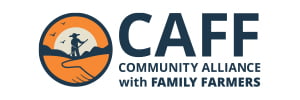
The coronavirus pandemic has revealed weaknesses within our food and farming system and exacerbated long-standing inequities. This pandemic has disproportionately impacted California’s small-scale farmers and, in particular, historically underserved farmers of color, many of whom continue to struggle to keep their farms operational while planning for an uncertain future.
Last week, Assemblymember Robert Rivas (D- Hollister) made an exciting announcement about a new bill he introduced, the Equitable Economic Recovery, Healthy Food Access, Climate Resilient Farms and Worker Protection Bond Act (AB 125). Find a recording of the press conference here.
This bond measure would invest in California’s communities to address the multiple challenges we face today: recovering from the impacts of the pandemic and fighting the climate crisis while rebuilding our food and farming system to be more equitable and resilient in the face of future shocks. This measure aims to deliver healthy food to the most vulnerable Californians while climate-proofing our farms that face droughts, wildfires, and extreme weather. It also invests in underserved communities, socially-disadvantaged farmers and ranchers, Tribes, small- and medium-sized farms, and small businesses to ensure an equitable economic recovery for California.
The bond’s four main targeted investment areas are as follows:
- Supporting Farmworkers ($637 million) — Affordable housing for farmworker families, stockpiling PPE for workers, and improving indoor air quality in existing farmworker housing and better connecting farmworker housing with services.
- Agricultural Solutions to the Climate Crisis ($1.135 billion) — Sustainable agricultural solutions to slow the impacts of climate change and reduce pollution; strategies that reduce wildfire risk and invest in farmland conservation to keep our farms viable and resilient; compost infrastructure to build healthy soils; groundwater sustainability.
- Combating Hunger and Improving Healthy Food Access ($750 million) — Infrastructure to improve food access for all Californians through our schools, food banks, food hubs, urban farms, farmers’ markets and other community-based investments to provide access to healthy, sustainably produced food.
- Regional Food Economies ($600 million) — Regional food processing, storage and distribution infrastructure to strengthen small- and medium-scale businesses across the food supply chain, and to increase equity, energy conservation and efficiency of farm (and sea) to table.
"AB 125 is a valuable opportunity to support those who have been disproportionately impacted and bolster our economic recovery, all while supporting family farmers to implement climate-resilient sustainable agriculture practices."
- Paul Towers, Executive Director, Community Alliance with Family Farmers Tweet

The coalition sponsoring AB 125 include the following members:
Agricultural Institute of Marin, American Farmland Trust, California Climate & Agriculture Network (CalCAN), Californians for Pesticide Reform, Carbon Cycle Institute, California Certified Organic Farmers (CCOF), Center for Food Safety, Central California Environmental Justice Network, Centro Binacional para el, Desarrollo Indígena Oaxaqueño (CBDIO), Community Alliance with Family Farmers, Intertribal Agriculture Council, Monterey Bay Central Labor Council, Natural Resources Defense Council, Pesticide Action Network, Roots of Change, Sustainable Agriculture Education, UFCW Western States Council.

